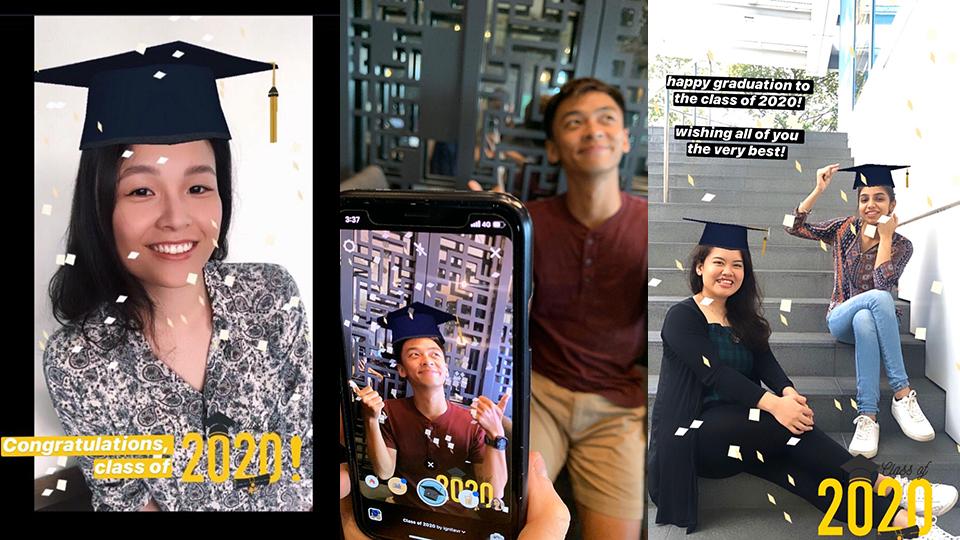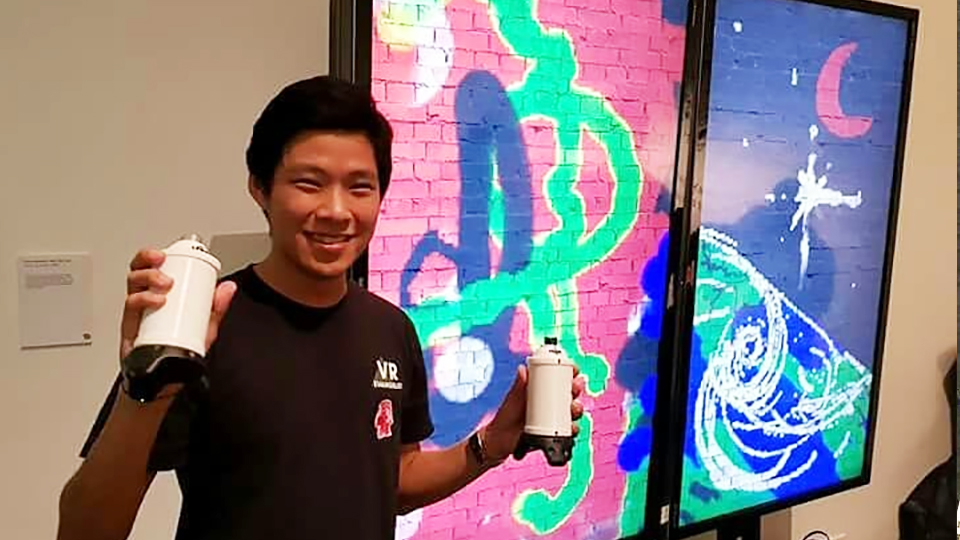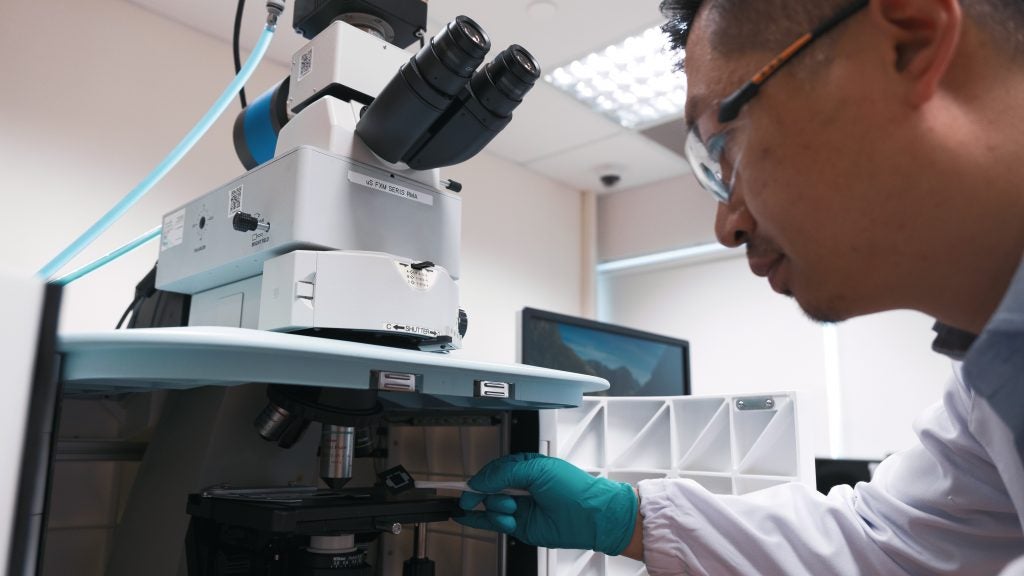
In the light of the COVID-19 pandemic and the consequent postponement of Commencement ceremonies, NUS Engineeringalumnus and start-up entrepreneur Mr Roy Koo took to Instagram to develop a filter for graduates. The filter allows graduates to don the mortarboard under a rain of golden confetti.
"It is the graduation period and we realised that this year people have less chance for a graduation ceremony and celebrations. Hence we thought about making this graduation themed filter for the Class of 2020 to let the graduates have some fun on their social media," said Mr Koo.
"We have a three step process for creation of such filters: Concept, Develop, Publish," he shared.
The Concept stage sees them brainstorm and finalise the ideas for the filter, considering the context of the event and the amount of time available. In the Develop stage the team uses an Augmented Reality software by Facebook to create the effects that can be used on the Facebook family of apps like Instagram, Facebook and Messenger which allows them to reach billions of people. Finally, before publicly publishing, they go through a Publish stage to test it with a small batch of users to get some initial feedback and bug test.
Designing Instagram filters is very much in line with Mr Koo's interests; he's a co-founder of the Virtual Reality (VR) event company IgniteVR. Started in 2016, Ignite VR was born out of the team's enthusiasm for the then-still budding world of VR technology. "We started up the company to explore the possibilities that this technology can create as well as to share with the public how amazing VR is."
Mr Koo added, "We have run a VR arcade pop up place at Marina Square, setup VR booths at events, as well as developed various VR experiences in different areas including games, education, medical, and workplace training."
They hope that the COVID-19 crisis will open more eyes and show people and companies how VR or AR can be integrated into digitalisation plans.

IgniteVR also took part in TEL Imaginarium housed in NUS Libraries, developing the Digital Graffiti Wall. Imaginarium is a collection of various AR and VR experiential projects showcasing the potential of these immersive technology tools in learning, teaching and research.
"The Digital Graffiti Wall was an installation that we created by combining the laser tracking technology from VR devices with a 3D printed spray can controller. When you point the 'spray can' at a screen or projection image connected to our computer and press the nozzle to spray it, the screen will act like it is sprayed on by graffiti but digitally. The concept here is to allow people to have fun and play around with graffiti art in an eco-friendly way, without breaking any laws. For Imaginarium, we transformed our fixed installation into a portable one, where the setup is placed on a pushcart and you can easily bring it to any place to set it up quickly as long as there is a white wall and a wall socket," Mr Koo explained.
Download the Instagram filter on a mobile device at this link.
This article was first published on 23 July 2020 in NUS News.





